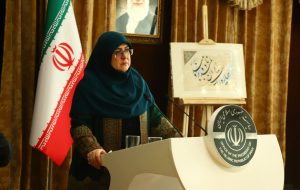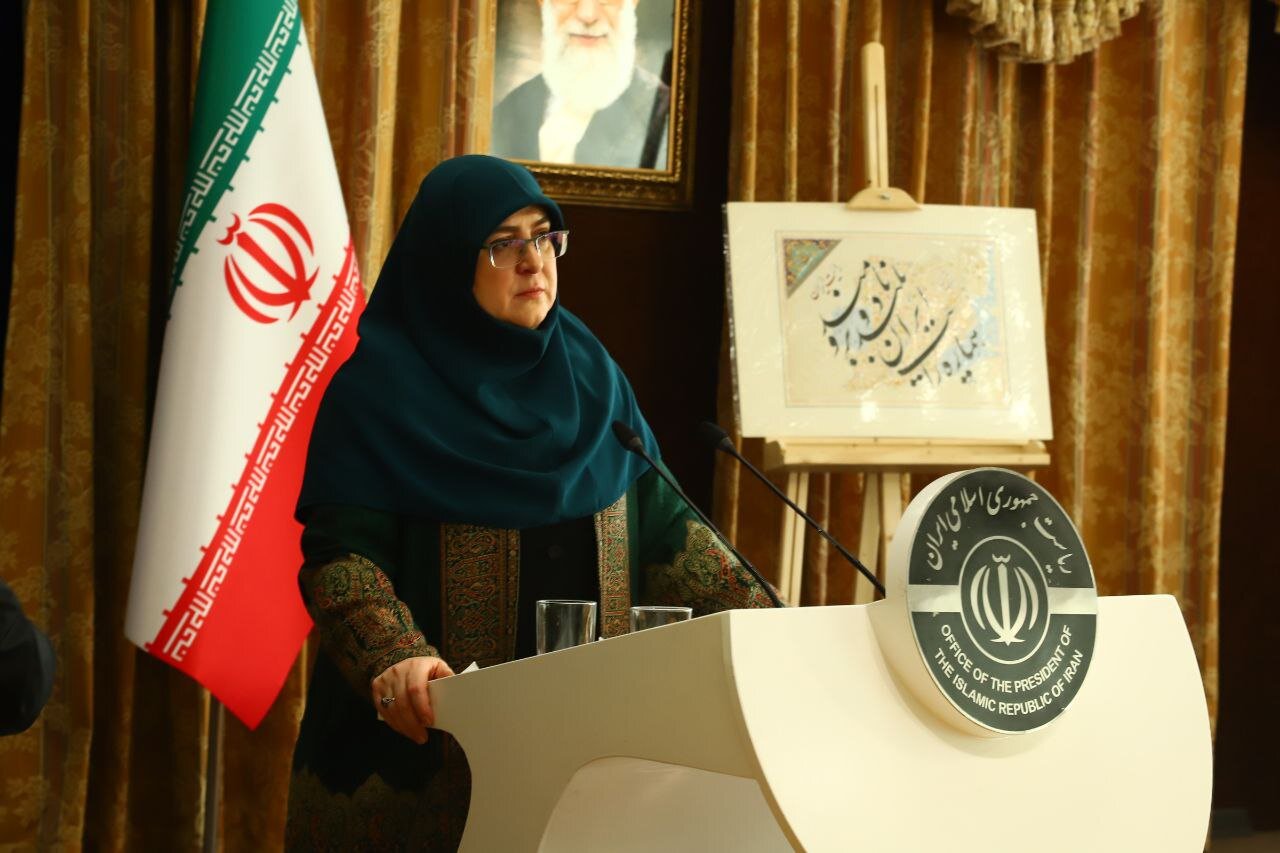Iran eyeing Makran for new capital, says government spokesperson
TEHRAN – In a press conference on Tuesday, government spokesperson Fatemeh Mohajerani announced plans to relocate Iran’s capital to the southern part of the country. “The new capital will certainly be in the south, specifically in the Makran region,” Mohajerani stated. She emphasized that while relocating the capital is not an urgent issue, an in-depth


TEHRAN – In a press conference on Tuesday, government spokesperson Fatemeh Mohajerani announced plans to relocate Iran’s capital to the southern part of the country.
“The new capital will certainly be in the south, specifically in the Makran region,” Mohajerani stated.
She emphasized that while relocating the capital is not an urgent issue, an in-depth expert evaluation is crucial due to Tehran’s growing population and environmental challenges.
Mohajerani explained that two councils have been established to address the current capital’s problems and to explore the maritime economy, including the potential relocation to the Makran coast.
The Makran region, located in Iran’s Sistan and Baluchestan Province, offers strategic advantages due to its proximity to the Gulf of Oman.
This area is an untapped treasure for Iran, with the potential to transform into a significant commercial and maritime hub, enhancing Iran’s trade capabilities and reducing the economic burden on Tehran.
“Alongside sea-oriented development, the development of Makran is a priority for the current government,” announced Iran’s Vice President Mohammad Reza Aref earlier this week.
The Makran coast, historically significant since the Achaemenid Empire, presents an opportunity for economic diversification.
The region boasts over 1,000 kilometers of coastline, with the Chabahar Free Trade-Industrial Zone being developed since 2003, aiming to become an international trade corridor connecting Central Asia to the Indian Ocean.
The move could also promote equitable growth across the nation.
Trade issues with Turkey
Addressing the ongoing truck drivers’ issues at the Turkish border, Mohajerani expressed gratitude for their hard work under harsh conditions, transporting essential goods.
She mentioned that a delegation from Iran is heading to Turkey to resolve these issues, expressing hope for a swift resolution.
Iranian truck drivers recently encountered significant delays at the Turkish border, due to a policy change revoking fuel tax exemption, affecting over a thousand trucks. This led to a week-long backlog, with drivers facing harsh conditions.
“As mentioned by First Vice President Aref, we hope to solve the truck drivers’ problems within a few days or even hours,” the spokesperson added.
The possibility of joining the FATF
Mohajerani touched upon the topic of joining the Financial Action Task Force (FATF), stating that the review of the Palermo bills at the Expediency Council has resumed with coordination among the branches of government and a directive from the Leader of the Islamic Revolution, Ayatollah Seyyed Ali Khamenei.
She highlighted that while joining the FATF is not a short-term issue, its approval would open doors for investors.
Established in 1989, the FATF claims to be an intergovernmental entity tasked with setting standards and encouraging countries to implement legal, regulatory, and operational measures against money laundering, terrorism financing, and other threats to the global financial system.
Mohajerani noted that even if the country passes the remaining FATF bills today, problems won’t be solved overnight.
“Not joining the FATF would create problems in transactions with neighboring countries,” she warned, indicating that compliance is in Iran’s best interest to foster economic relations and support regional peace and prosperity.
Plans for dealing with Trump
When asked about the government’s strategies for dealing with the incoming U.S. President Donald Trump, Mohajerani remarked that the government has made preparations and communicated specific scenarios to the relevant institutions before Trump takes office on January 20.
She reiterated that there is no uncertainty or lack of planning in the government.
In response to a query regarding Iran’s readiness to negotiate its nuclear program and engage in direct talks with the U.S., Mohajerani reiterated Iran’s foreign policy principles of dignity, wisdom, and expediency.
She stated that Iran is willing to negotiate with the world to resolve nuclear issues but emphasized that the U.S. was the one to abandon the international agreement.
